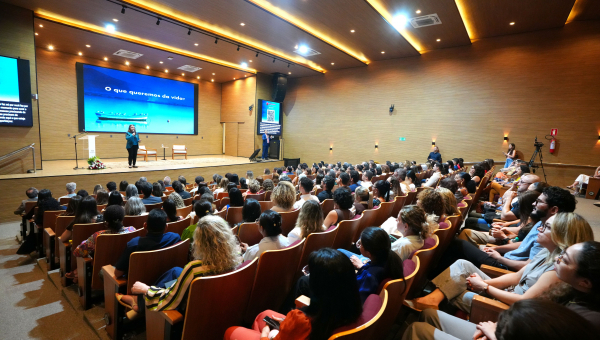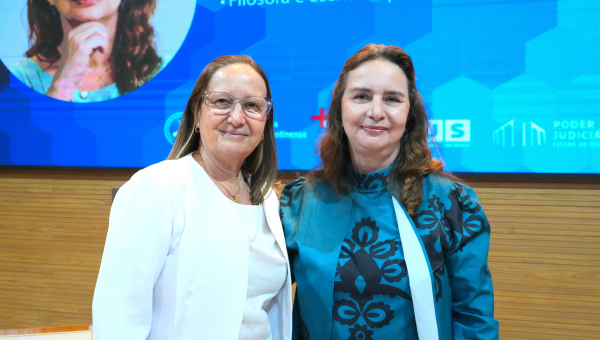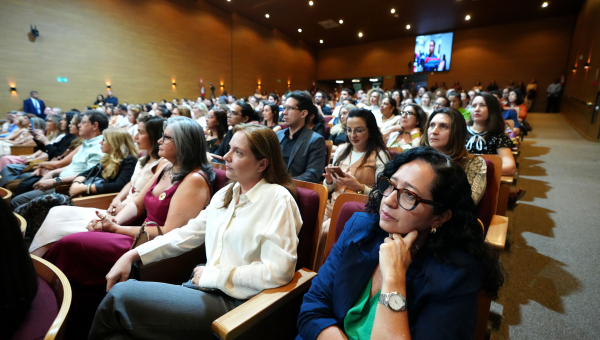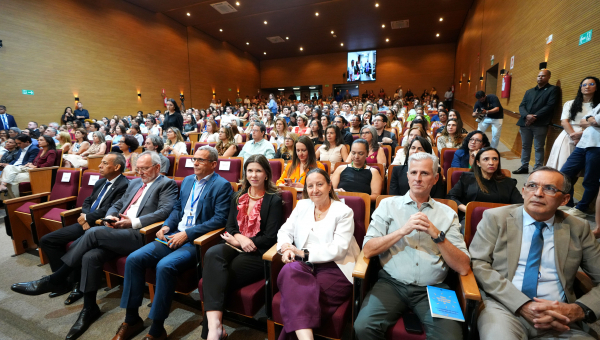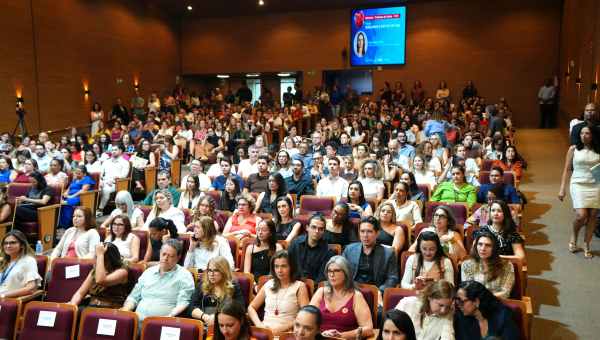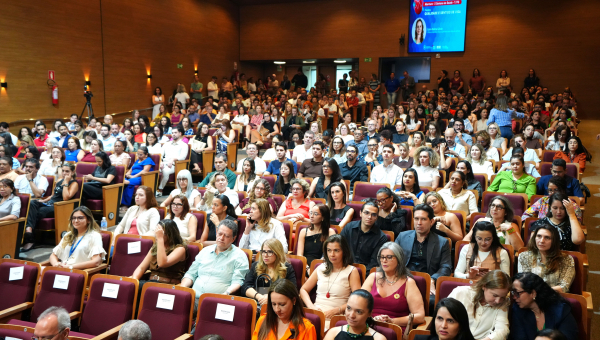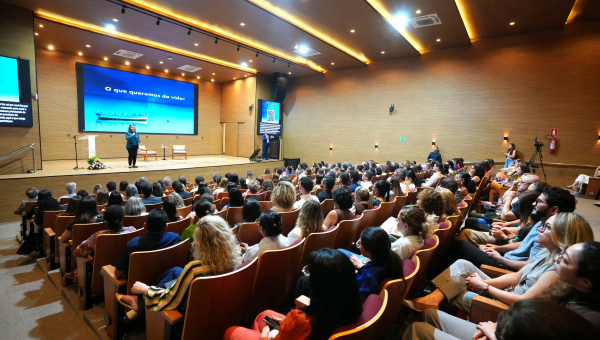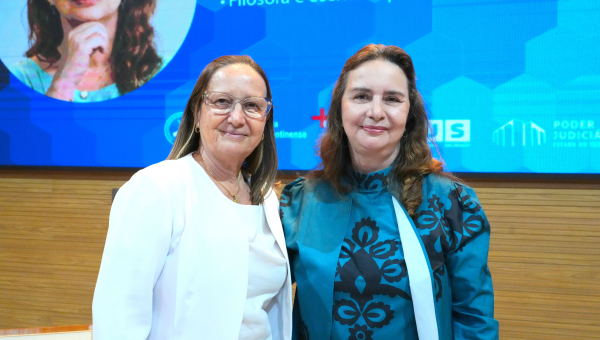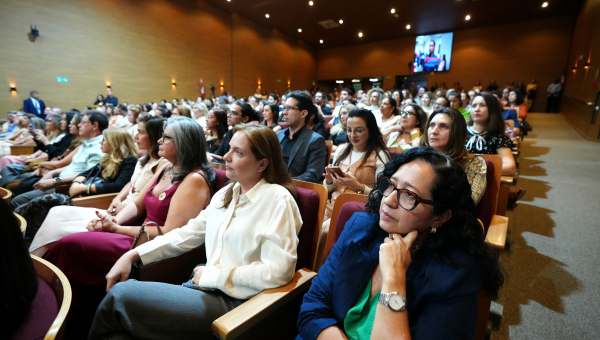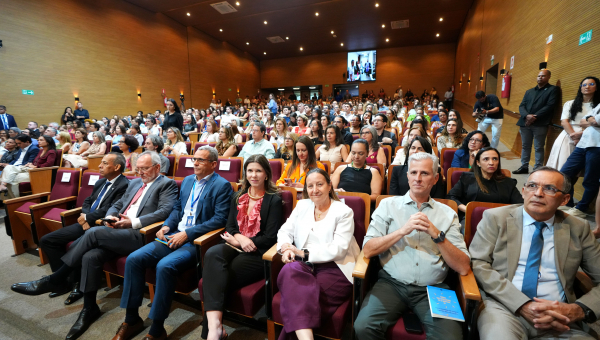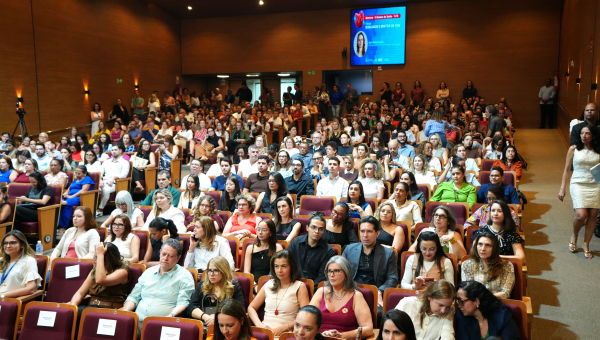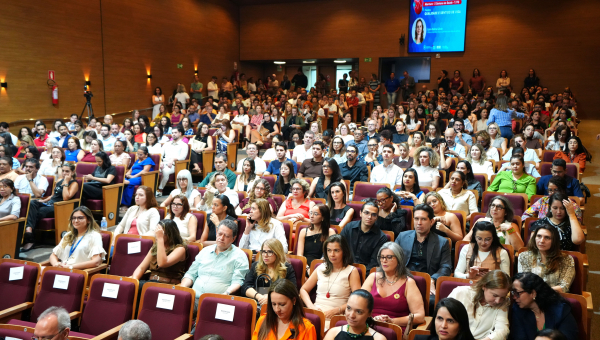
“What human being do you want to be at the end of your life?"
It was with this question that the Professor and Philosopher Lúcia Helena Galvão opened the lecture on "Quality and Sense of Life: philosophical reflections", on Monday afternoon (October 27th), in the auditorium of the Court of Justice of the State of Tocantins (TJTO). The activity marked the beginning of the X Health Week of the Judiciary of the state of Tocantins, a project that brings together a programming focused on the physical, mental and emotional well-being of the civil servers of Justice.
Broadcast live to the counties of the interior and accompanied by hundreds of people, the lecture proposed a pause for a theme that we often avoid: ourselves.
A look inside
With more than 600 registrants, magistrates, civil servers and trainees were invited to reflect on what gives meaning to their trajectories. For the speaker, the search for well-being is only complete when accompanied by self-knowledge.
“Who are you? What human being do you want to be at the end of life?" asked Lúcia Helena.

“Quality of life is not just about comfort, leisure or safety. It’s about knowing where we want to go and what we are building in ourselves. When we have a sense, we have direction, and that is what allows us to discern and choose what really matters", she pointed out.
The professor spoke about the existential emptiness that is often confused with accelerated daily life, pointing out that the modern human being usually seeks happiness in "escape routes", be they consumption, excess of distractions or the constant need for social approval.
"There are people who have everything and yet feel unhappy," she said, noting that true freedom is in controlling thoughts, emotions and actions, not in meeting external expectations.
The invitation was clear: imagine the last days of life and think about who we wish to have become. What virtues will we have developed? What trail will we leave in the world?
The philosopher also criticized the so-called "package of maximum happiness", an incessant search for goods, status and validation that often only covers the absence of meaning.
“People with many possessions and highly depressed are examples that it is not the amount of things we possess that makes us happy, but how much we possess. Maybe what we lack is just that: to be owners of ourselves", reflected.
Lúcia Helena also highlighted the importance of virtues, the value of love as a transforming force and the need to see life as a work in construction.
“The best thing we can do for those we love is to grow as human beings. True love is demanding, it’s selfless. He drives us to be better, to inspire the other.
By quoting thinkers such as Plato, Aristotle, Sartre and the Stoics, the philosopher demonstrated that the meaning of existence is to become a reference of humanity, someone who, when perfected, also transforms the world around.
“Life is fleeting. What remains is how much we have become better people, and how much we have been instruments of transformation for others," she said.
An invitation to the integral care
Before the lecture, the president of the TJTO, Justice Maysa Vendramini Rosal, highlighted that the X Health Week reinforces the commitment of the institution with the integral care of its members.
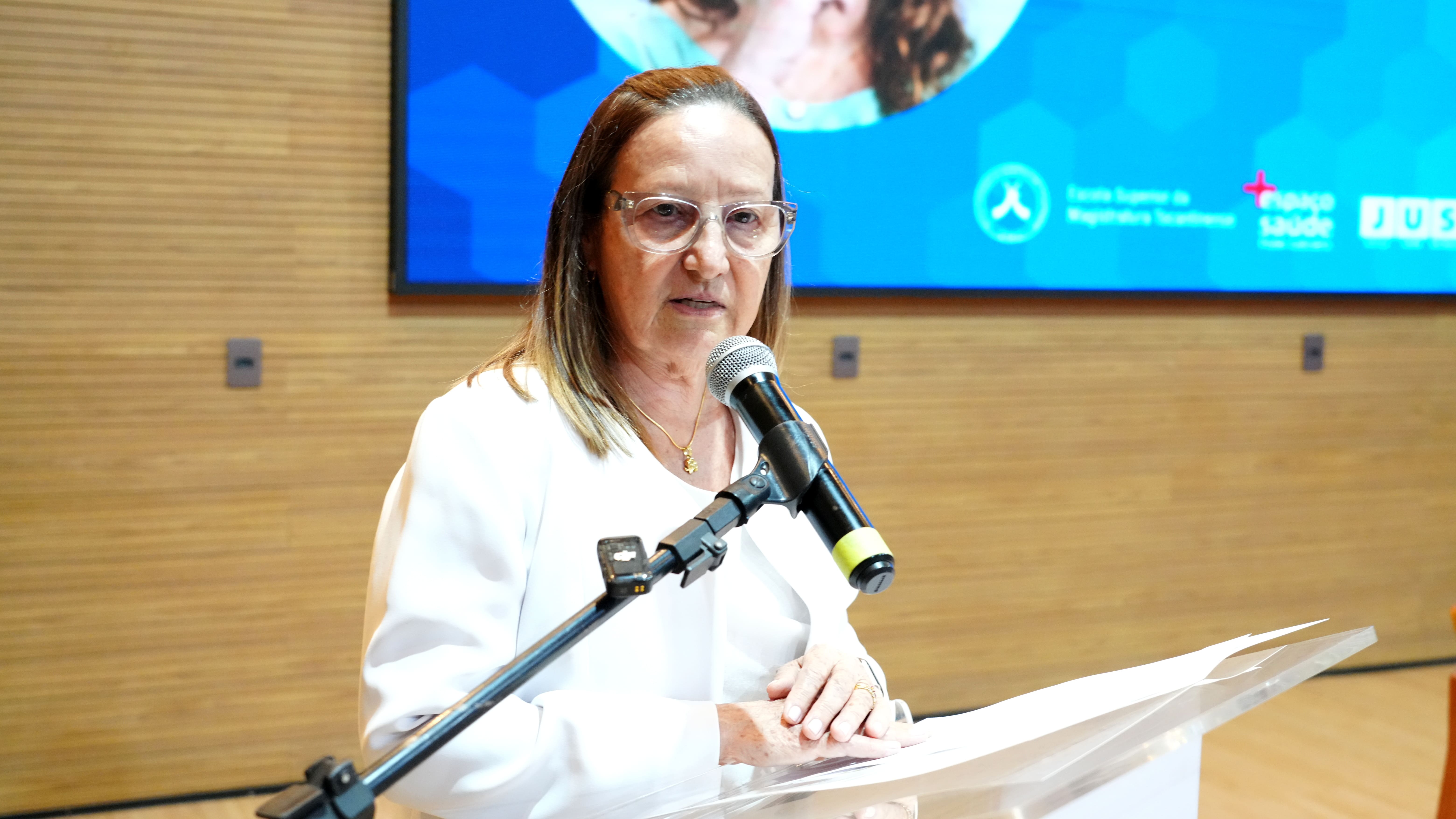
“Taking care of the physical, mental and emotional health of those who build the Judiciary is also take care of Justice. This edition of the Health Week is a gift - a demonstration of respect and appreciation to each civil server ", she expressed”
The coordinator of the Health Space, Doctor Elaine Cristina Ferreira, also reinforced the human purpose of the initiative: "Every action has a real impact on the lives of people. This is what gives meaning to our work: taking care of who makes the Court happens.”
The echo of the lecture
The lecture was not only about philosophy, it was about humanity. At one point, the silence in the audience was visible. Some wrote down sentences; others just looked at the ground. Perhaps the meaning of life was not revealed there, but the willingness to seek it, yes. As Plato would recall, getting out of the cave requires courage. As Sartre would say, this courage is the price of freedom. And as Lúcia Helena concluded:
“What really gives meaning to life is what we build within ourselves as we walk.”
Maybe that’s why, in the end, everyone left with something new, a doubt, a certainty, a slight annoyance. Signs, perhaps, that philosophy has fulfilled its role: to make people think, feel and in some way exist again.




